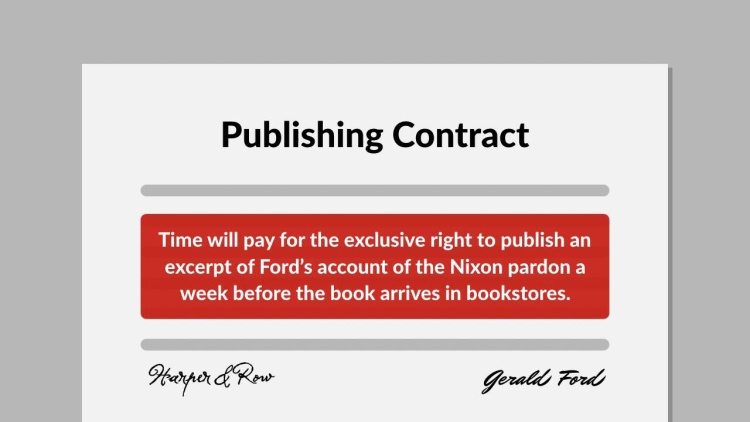Harper & Row Publishers, Inc. v. Nation Enterprises
United States Supreme Court
471 U.S. 539 (1985)

- Written by Sean Carroll, JD
Facts
Harper & Row Publishers, Inc. (Harper & Row) (plaintiff) drafted a manuscript autobiography of President Gerald Ford. Before Harper & Row published the manuscript, it sold exclusive rights to publish excerpts from the manuscript to Time Magazine (Time). Time planned to publish the excerpts approximately one week before the full manuscript was to be published. Harper & Row went to great lengths to keep the manuscript confidential, and Time agreed to maintain that confidentiality until it published its article. However, a source leaked the unpublished manuscript to The Nation Magazine (The Nation) (defendant), which used the manuscript to draft and quickly publish an article entitled “The Ford Memoirs—Behind the Nixon Pardon.” The Nation’s article paraphrased the manuscript and also quoted directly from the important portions of it. The quoted portions amounted to approximately 13 percent of the manuscript. The Nation’s article did not include any commentary on or critique of the manuscript. The Nation published the article just before Time planned to publish its article. Upon seeing The Nation’s article, Time canceled its agreement with Harper & Row and refused to pay. The district court ruled that The Nation’s article infringed on Harper & Row’s copyright. The United States Court of Appeals for the Second Circuit reversed, finding that The Nation’s article was fair use, in part because it found that the fair-use defense is expanded when the subject matter is of high public concern. The United States Supreme Court granted certiorari.
Rule of Law
Issue
Holding and Reasoning (O’Connor, J.)
What to do next…
Here's why 904,000 law students have relied on our case briefs:
- Written by law professors and practitioners, not other law students. 47,100 briefs, keyed to 995 casebooks. Top-notch customer support.
- The right amount of information, includes the facts, issues, rule of law, holding and reasoning, and any concurrences and dissents.
- Access in your classes, works on your mobile and tablet. Massive library of related video lessons and high quality multiple-choice questions.
- Easy to use, uniform format for every case brief. Written in plain English, not in legalese. Our briefs summarize and simplify; they don’t just repeat the court’s language.





